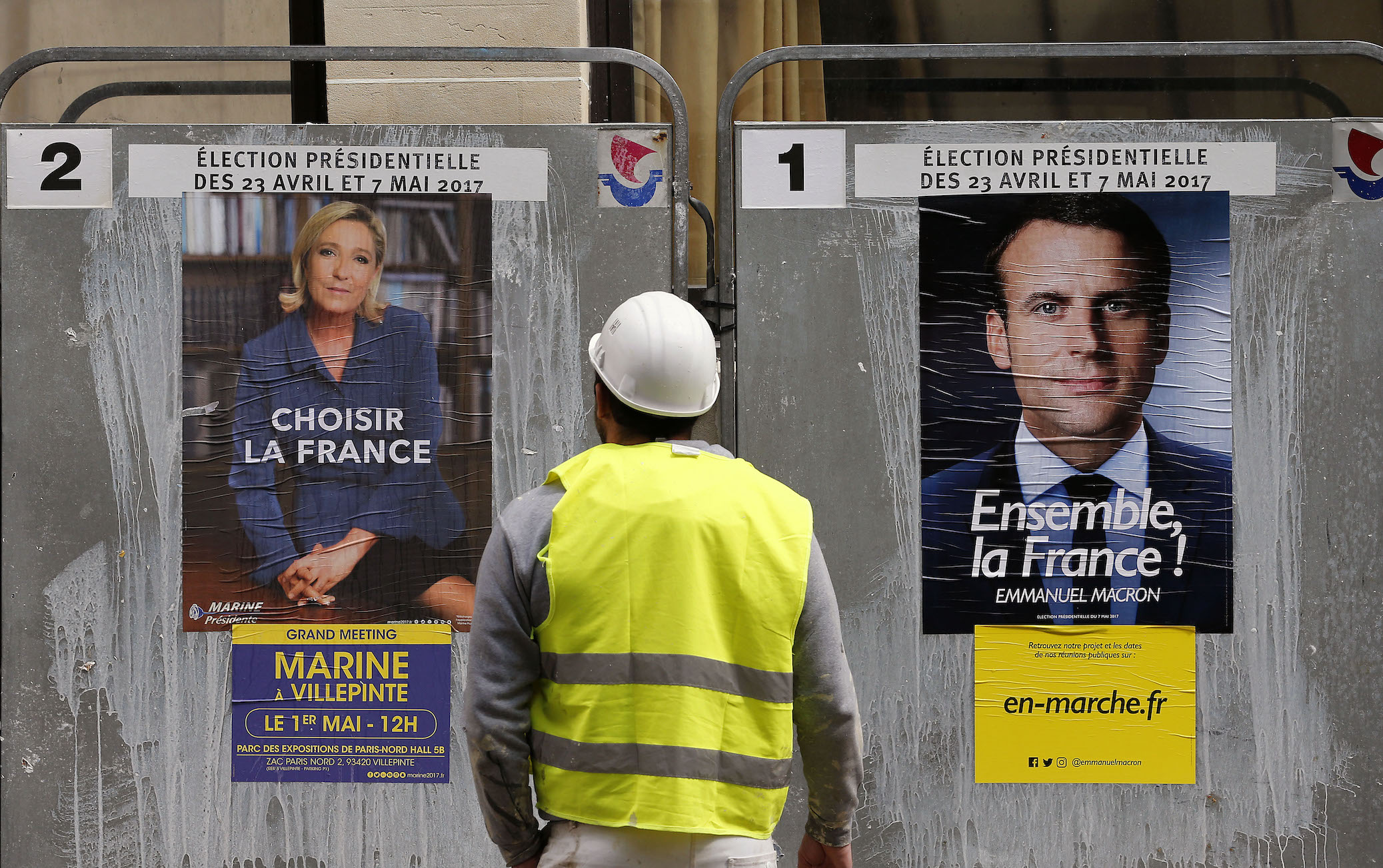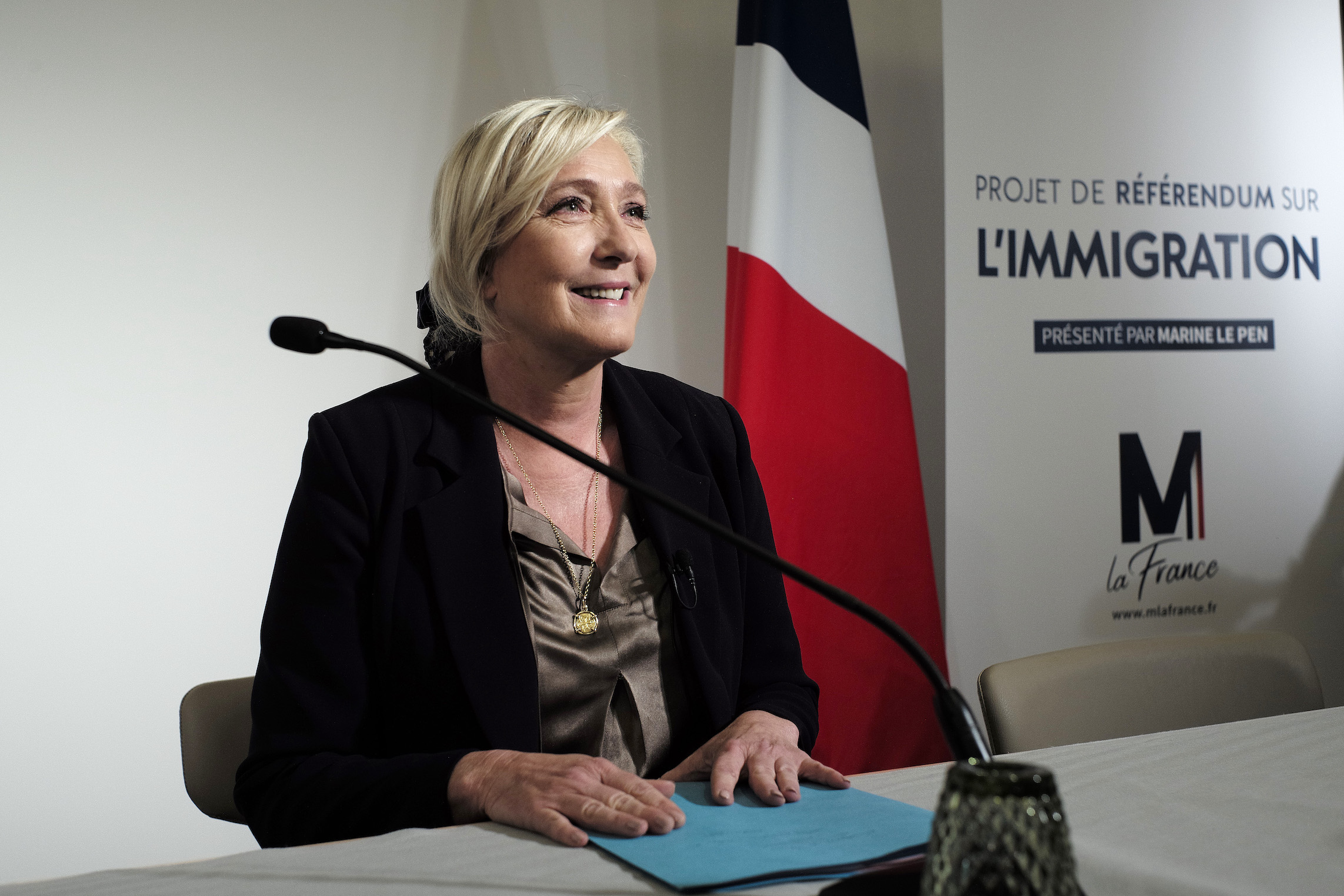
Politics & Society
Is Australia becoming the ‘lonely’ country?

Why do the French elections matter to Australia? More now due to new challenges to France’s commitment alongside Australia in the fraught geo-politics of the Indo-Pacific
Published 29 September 2021
Will the next President of France be Emmanuel Macron, Marine Le Pen or another of the candidates who will contest the first round of the elections on 10 April 2022? If no-one wins a majority (and that seems virtually impossible), the two front-runners will face off a fortnight later on the 24th April.
Why does the election matter to Australia? Most important, from a strategic point of view, is whether there is to be continuity in France’s commitment to involvement alongside Australia in the fraught geo-politics of the Indo-Pacific.

Australia’s decision on 16 September to abandon the $A90 billion submarine contract with the French shipbuilder Naval Group will have significant repercussions needing to be managed.
The French government immediately criticised “the removal of an ally and a European partner such as France from a structuring partnership with Australia, at a time when we are facing unprecedented challenges in the Indo-Pacific region”.
Embedded in that strategic question is the status of New Caledonia, where the third of three referenda on independence will be held in a few months, on 12 December. If this results in a vote to stay with France, like the earlier two, how will France respond to Kanak discontent?

Politics & Society
Is Australia becoming the ‘lonely’ country?
Of international significance, too, is what the presidential election will signal about France’s leadership in Europe, all the more important with the departure of Angela Merkel in September 2021 after 16 years as Chancellor of Germany.
Emmanuel Macron launched his political party La République en Marche! (LRM, ‘The Republic on the Move!’) in April 2016. One year later, in May 2017, he became President of the Fifth French Republic by a percentage margin of about 65:35 over Marine Le Pen.
Aged just 39, he was France’s youngest leader since Napoleon Bonaparte became Emperor aged 35 in 1804. In the parliamentary elections that followed his presidential win, Macron’s LRM candidates won 314 of the 577 constituencies.

He pitched himself as the new centrist, almost above politics in his broad appeal as an agent of change after decades of stagnation. Support for the older, established centre-right and centre-left parties imploded.
In 2017 Macron won the presidential election comfortably because, apart from those who supported him, he could also count on support from those across the political spectrum for whom the ideological baggage of the Le Pen family made it unelectable. If Le Pen is again his opponent, the outcome may be the same, but it is likely to be closer.
Le Pen has worked assiduously to make her brand more respectable, symbolically changing her party’s name from Front National to Rassemblement National (RN, ‘National Rally’). But much of her program remains similar: stronger policing, hostility to both Europe and ‘Islamisation’, and appeals to ‘freedom’, including the right not to vaccinate.
Perhaps because Macron correctly sees his main opposition coming from candidates to his right, he has been prepared to strengthen his appeal to nationalist sentiment – for example, using his Education Minister to castigate what they dismissed as ‘Islamo-leftism’ in universities.
While Macron has a positive image outside France as the face of democracy and globalism, the articulate junior partner to Angela Merkel, within France his liberalism is more often criticised as technocratic and socially elitist.
His attempts to loosen labour laws and reduce pension entitlements have been seen as an attack on the French ‘social model’ and have alienated many left-of-centre voters who supported him in 2017.
In 2018 and 2019, Macron faced the popular rancour of the ‘gilet jaunes’ (‘yellow vests’), those disaffected by their sense of being left behind by cost-of-living increases, globalisation and the rule of technocratic élites.

Their numbers have thinned but remain present in the new social movement opposing the ‘pass sanitaire’ – the proof of vaccination necessary to use long-distance transport, to enter restaurants and to attend public events.
Like the ‘yellow vests’, however, the anti-vaxxers are a disparate group, ranging from the libertarian left to the extreme right.
One rally in Toulouse on 12 September degenerated within minutes into a brawl between participants. Only 10 per cent of French people are opposed to vaccination, and the ant-vaxxer protests are more likely to bolster support for Macron than undermine it.

Health & Medicine
Public attitudes to immunity passports
This far out from the elections, multiple candidates from every party except the President’s LRM and Marine Le Pen’s RN are jockeying for position to win their party’s endorsement.
The main right-of-centre party, Les Républicains (LR), will most likely have to proceed to internal primaries, with three strong candidates standing: Xavier Bertrand, the President of the regional council of Hauts-de-France in the northeast of the country; Valérie Pécresse, President of the regional council of the Ile-de-France around Paris; and Michel Barnier, the former European Commissioner who negotiated Brexit.
But the LR party is bothered by the potential presence of Éric Zemmour, a popular right-wing columnist for Le Figaro and author of the best-selling 2014 polemic, Le Suicide français.

Their nightmare is that Zemmour could attract enough of their support to enable Le Pen to survive to the run-off against Macron – or worse, could fracture the right-wing vote and allow a left-wing candidate to win through to the second round.
For their part, left-wing parties have remained in disarray since the 2017 defeat.
There are many well-known left-of-centre candidates, such as Christiane Taubira, former Minister of Justice under President François Hollande; Jean-Luc Mélenchon, President of La France Insoumise (LFI, ‘Rebellious France’); another former minister Arnaud Montebourg; and the current Parti Socialiste (PS) mayor of Paris, Anne Hidalgo.

Politics & Society
US trade policy after Trump
But it seems highly unlikely that they will agree to a system of primaries to enable a single-left-wing candidate to run in the first round.
A prediction from six months out?
There is great uncertainty at this point: there are currently 32 declared candidates, including five ecologists, of whom many will withdraw. Another factor is that voting is voluntary and therefore less predictable: in 2007, 84 per cent voted in the second round, but in 2017 only 75 per cent.
Much can and will happen between now and 24 April, but one possible outcome is another Macron-Le Pen run-off, with the result again going Macron’s way, but with a narrower victory, perhaps 55:45.
But recent polls have shown that Xavier Bertrand could defeat either Macron or Le Pen if he makes it to the second round.
This article was first published on the University of Melbourne’s Election Watch.
Banner: